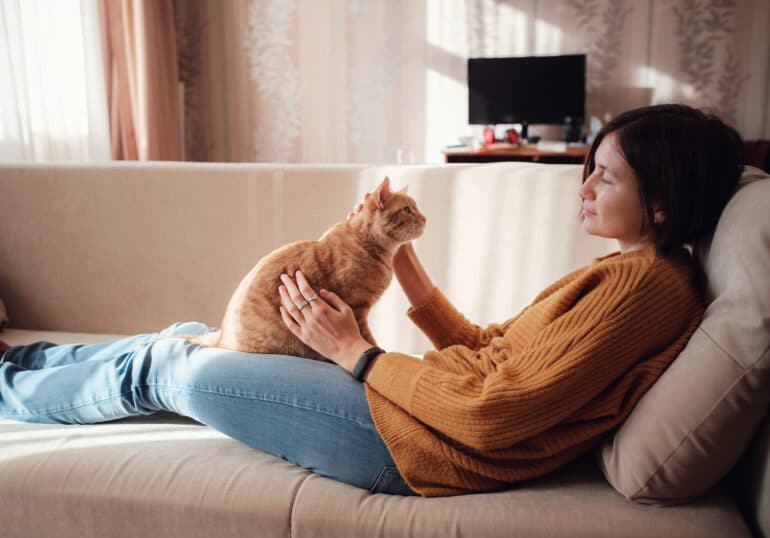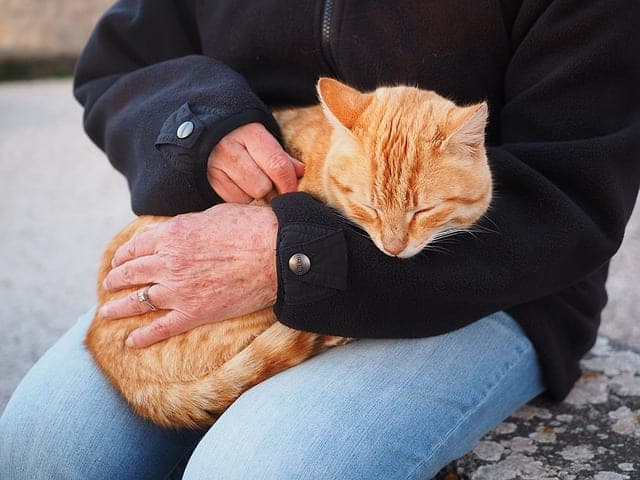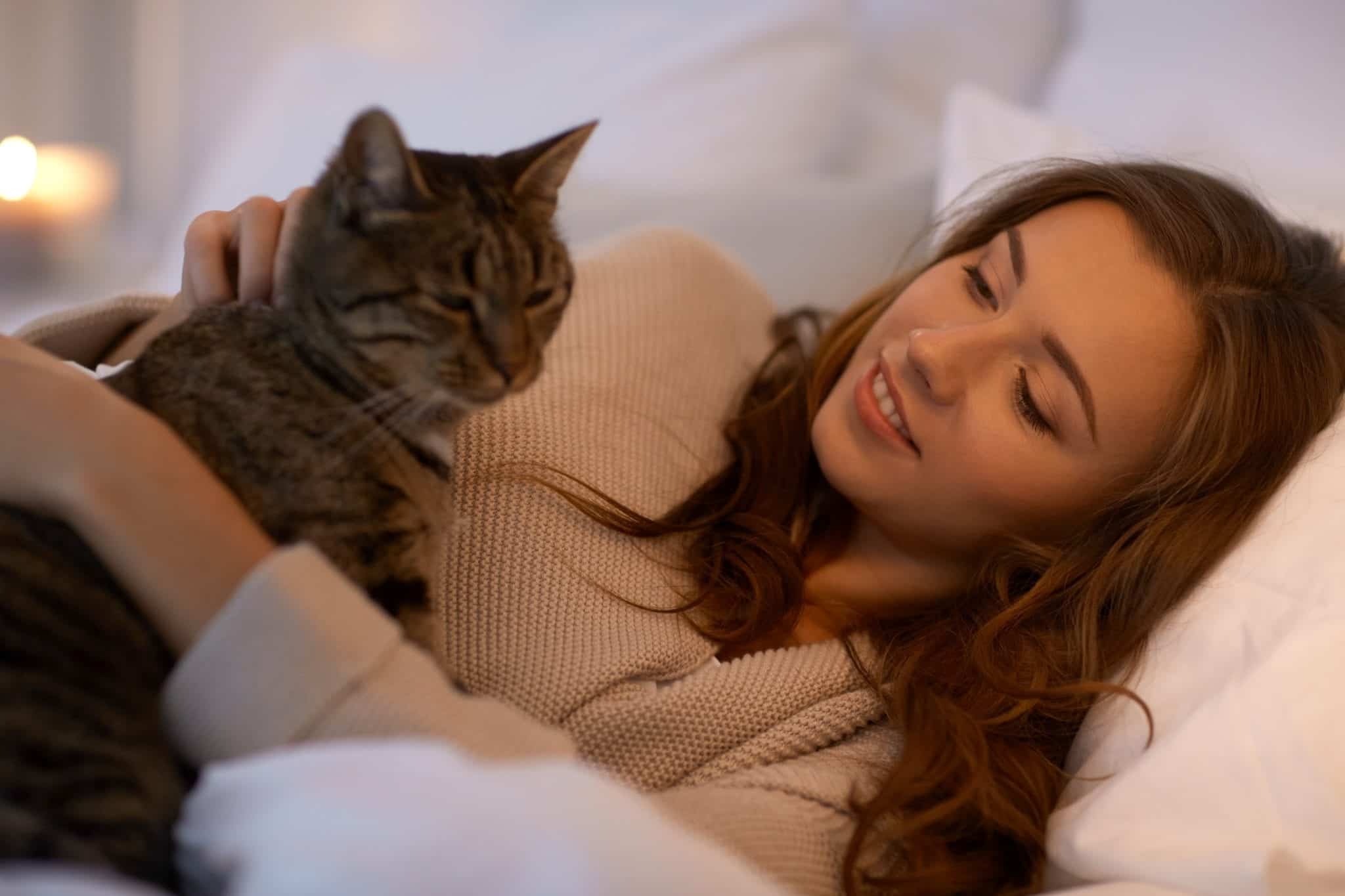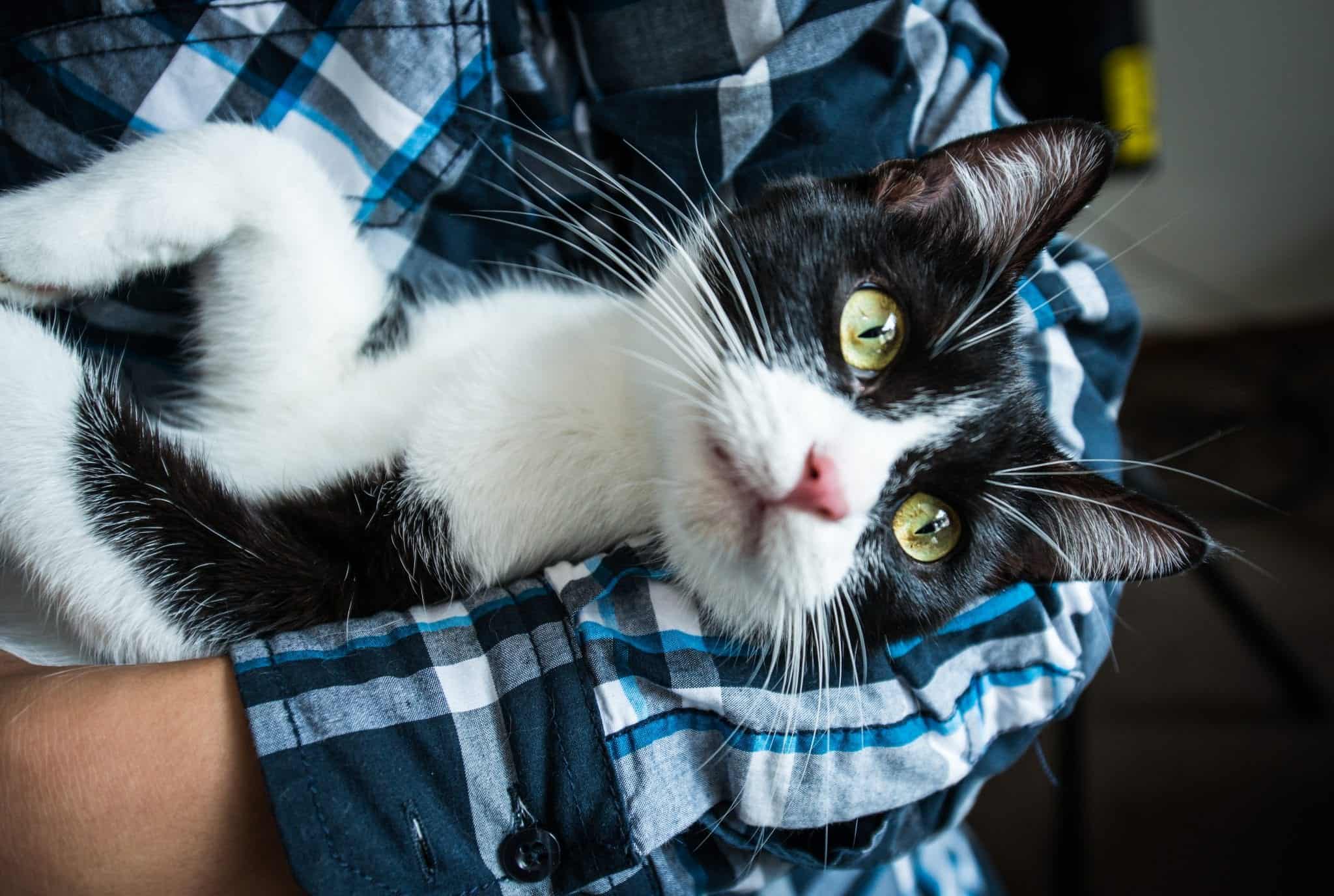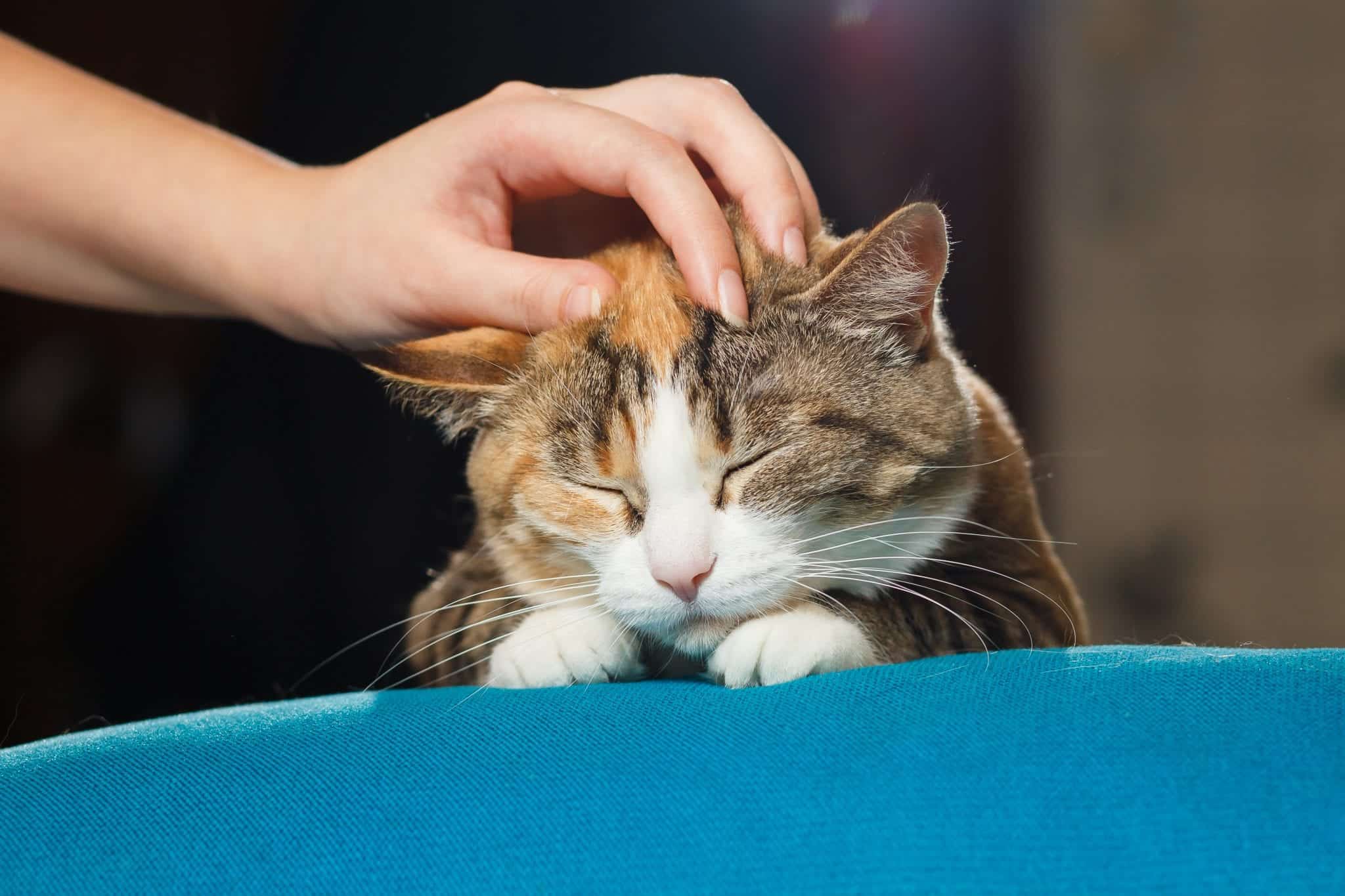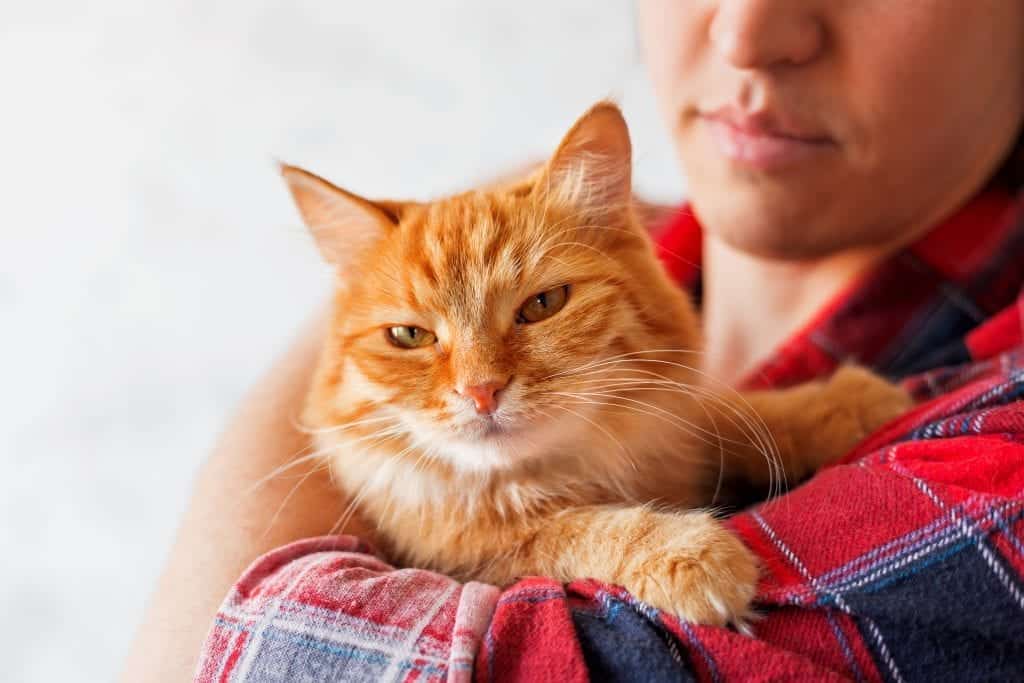Cat people don’t need scientific data to know their feline friends are important for their health. Those little whiskered faces never fail to make us smile, and our cats are some of the best friends we’ve ever had. We wouldn’t give them up for anything, and it turns out that science is on our side. There are countless studies and research projects on how cats are good for mental health. From their motorboat purrs to their constant companionship, cats are basically furry therapists.
Here are the top ways you can improve your mental health by having a cat in your life.
1. Four-Legged Stress Relievers
When you’ve had a bad day or are getting bogged down and overworked, petting your cat is one of the best things you can do. A study by Washington State University found that sitting down to cuddle a cat for just a few minutes can significantly reduce stress. It lowers the amount of cortisol (a stress hormone) that the body produces, and it can have instant effects. It’s impossible to feel stressed when you have a cat in your lap.
Bonus Fact: A cat’s purr is proven to be physically and mentally therapeutic for us humans. The sound and subtle vibration can do everything including reduce stress, lower blood pressure, calm labored breathing, and even heal broken bones.
by Pretty Litter
2. The Best Kind of Friend
Good friendships are a vital part of mental health. Friends fulfill our basic need for social interaction and emotional connection. They make us laugh and keep us from feeling lonely. Human friends are important, but the bonds we share with our cats can be just as valuable. Cats can be moody, but that doesn’t stop them from providing unconditional love.
Having a cat for company makes us feel important and understood. It also wards off feelings of loneliness and depression. When you play with your cat every day and spend time snuggled up on the couch, you foster the kind of friendship that can never be replaced.
3. Purpose and Routine
According to HeadSpace.com, routines have a long list of psychological benefits. They can alleviate symptoms of bipolar disorder, ADHD, and even insomnia. It can also be a long-term way to cope with anxiety and stress. Routines encourage people to stay organized, productive, and purposeful. Having no plan and no obligations sounds like a kind of freedom, but many people have experienced how that lack of structure can send their mental health spiraling downward.
Many therapists recommend routines for people struggling with their mental health, and cats can be an important part of that. Cats require daily attention. They need to be fed multiple times a day, they need their water dish filled, the litter box needs cleaned, and they also require regular love, attention, and exercise. All of those needs can sound like a drag, but they’re actually part of how cats benefit mental health. They give people purpose and routine to buoy feelings of self worth and confidence.
4. Feeling the Love
You know that warm and fuzzy feeling you get deep in your chest when you look into your cat’s eyes? We like to call that love–obviously! That feeling is caused by a hormone called oxytocin. It’s the same hormone that comes into play when mothers hold their babies and spouses kiss. It creates a feeling of calm, comfort, and safety. Basically, oxytocin just makes you feel good.
Studies show that cats can trigger the release of oxytocin. And when your body is flooded with that love hormone, your mental health gets an incredible boost.
5. Self Regulation and Control
It isn’t always easy to regulate our emotions. When we get angry, we want to scream and hit things. When we’re frustrated, we tend to take it out on others. Those are all normal human flaws, but they can have a negative influence on how we interact with others and our mental health. It’s hard to be friends with someone who can’t control their emotions. And we already talked about how having friends is important for mental health.
As timid animals, cats practically demand that people learn to control their emotions and regulate their actions. They don’t like sudden movements or loud noises. Some of the most shy cats will hide or act aggressively if they don’t like the way a person is behaving. Cats teach us how our moods and behaviors can affect others, and that helps us when we leave the house to make human connections.
by Pretty Litter
Every cat is different, but embracing the bond between human and feline can do a world of good for your overall happiness and mental health. When you find a cat that makes you feel good, don’t let them go!

